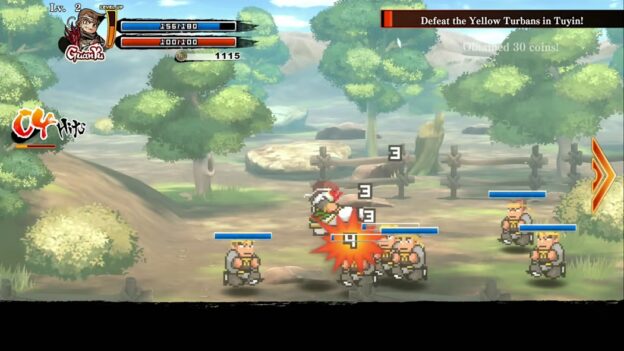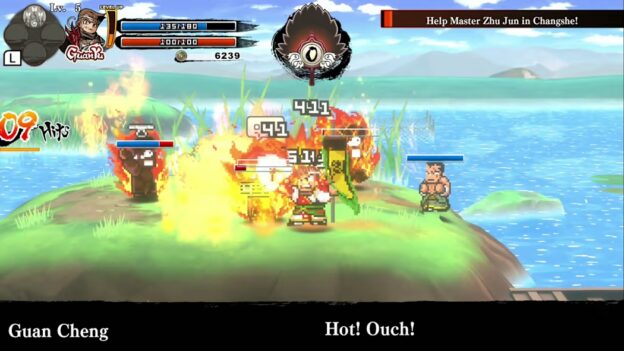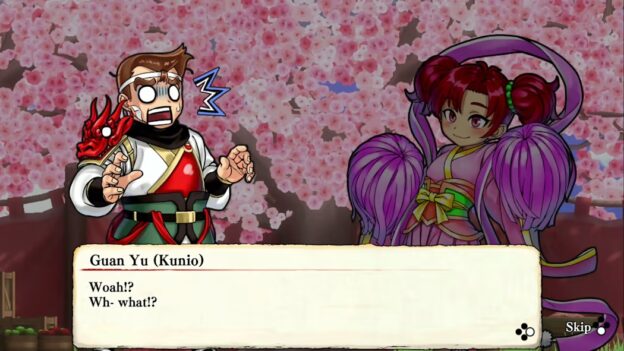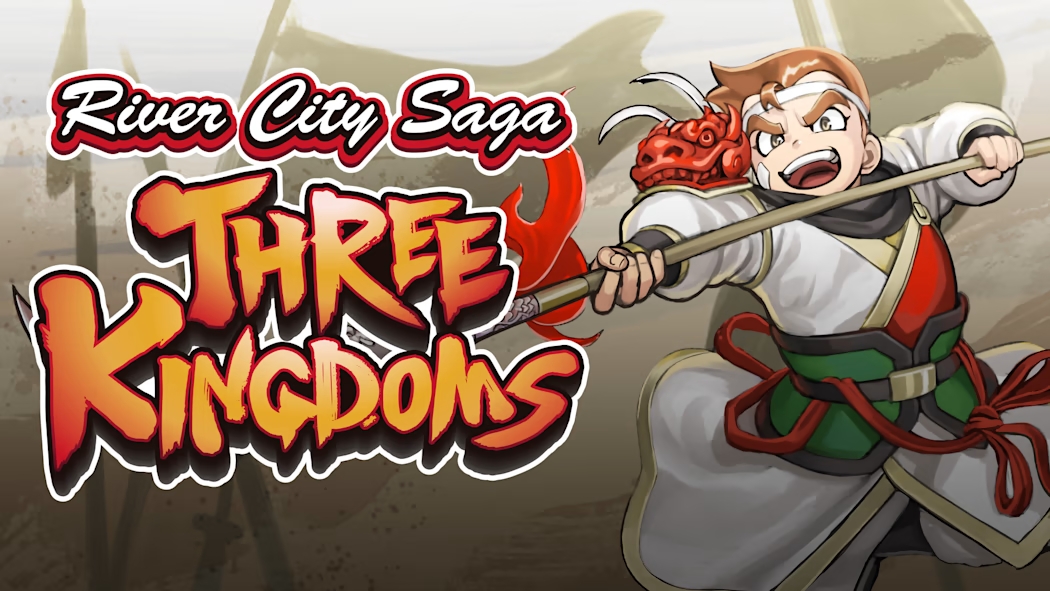River City Saga: Three Kingdoms is a side-scrolling beat ‘em up set in ancient China. It’s a throwback to the classic beat ‘em ups of yesteryear, featuring characters from previous River City games in new roles. This historical mash-up aims to bring a smashing good time with a dose of nostalgia. Despite some clear flaws, it does try its best to deliver on this promise.
The plot features a loose history lesson based on the Three Kingdoms period of China that occurred 1,800 years ago. One clever aspect—for fans of previous River City outings, at least—is the use of main characters from the series. Our hero Kunio, for example, assumes the role of Guan Yu, an actual Chinese military general. I haven’t personally played any other games in the series (which date all the way back to 1989), but it’s a nice touch that I’m sure fans will appreciate.

The gameplay is suitable for the genre. That is, you roam from left to right (or right to left) while walking up and down through various settings beating up everyone in your path. The controls are simple, with punch, kick, and grab at your disposal. These, along with almost everything else, can be upgraded during your journey, giving River City Saga an acute RPG feel. As you level up, you can choose how to upgrade your attributes, from strength and endurance to luck and intelligence. You can also purchase scrolls to unlock more moves, and clothing to offer more protection. Upgrading and equipping these was the most fun aspect for me.
Unlike most side-scrolling beat ‘em ups, the enemies tend to come at you all at once. This is an odd choice that doesn’t always work. For one, it makes it much harder to defeat them because there’s no time to pull off any cool moves. Being surrounded by enemies only allows for simple jump and punch/kick combos; using your special rapid punch, for example, leaves you vulnerable since you can’t move for a few seconds while you stand there punching. The other downside is that, once you’ve cleared the area, you then have to walk through the rest of the scene without running into anyone. It’s a little distracting and disproportionate.

Thankfully, there are plenty of side quests to keep things interesting on your way to free China. You can choose to help townsfolk who accost you with their woes, rewarding you with food or coins. It also improves your reputation, which contributes to your becoming the renowned heroes who can defeat China’s enemies.
The game is divided into six chapters. Unfortunately, despite a regular “saving in progress” feature, after several hours of playing I went back to the chapter menu only for my progress to be erased. Needless to say, I was not impressed. Another issue with River City Saga is its performance. I noticed obvious flicker and slowdown when too many enemies were on the screen at once (which is often).

My biggest gripe with the game, though, is its vague pathways and useless map. On the one hand, you can travel back and forth across previously visited sites, which makes earning rewards for side quests easier. On the other hand, it is extremely unclear which direction to travel in order to continue the story. I was stuck for a very long time trying to get to the next location, backtracking an awful lot in frustration. This could be made much clearer.
On the plus side, River City Saga sports a colorfully retro aesthetic that suits the vibe and genre. The historical aspect allows for well-designed towns, with a population that fits into the period. The audio matches this feel, with a theme that comes across as a modern-day rendition of something from that era and region. It’s a little repetitive, but well done.
Overall, River City Saga: Three Kingdoms is a fun yet flawed beat ‘em up. The historical aspect is neat, and series fans will enjoy seeing familiar characters in a new setting. The action is decent, and the upgrading is enjoyable, but the performance issues and convoluted map can be frustrating.
Review: River City Saga: Three Kingdoms (Switch)
Fair
River City Saga: Three Kingdoms is a fun yet flawed beat ‘em up. The neat historical aspect and familair faces should appeal to fans, though it’s marred by performance issues and a convoluted map system.


